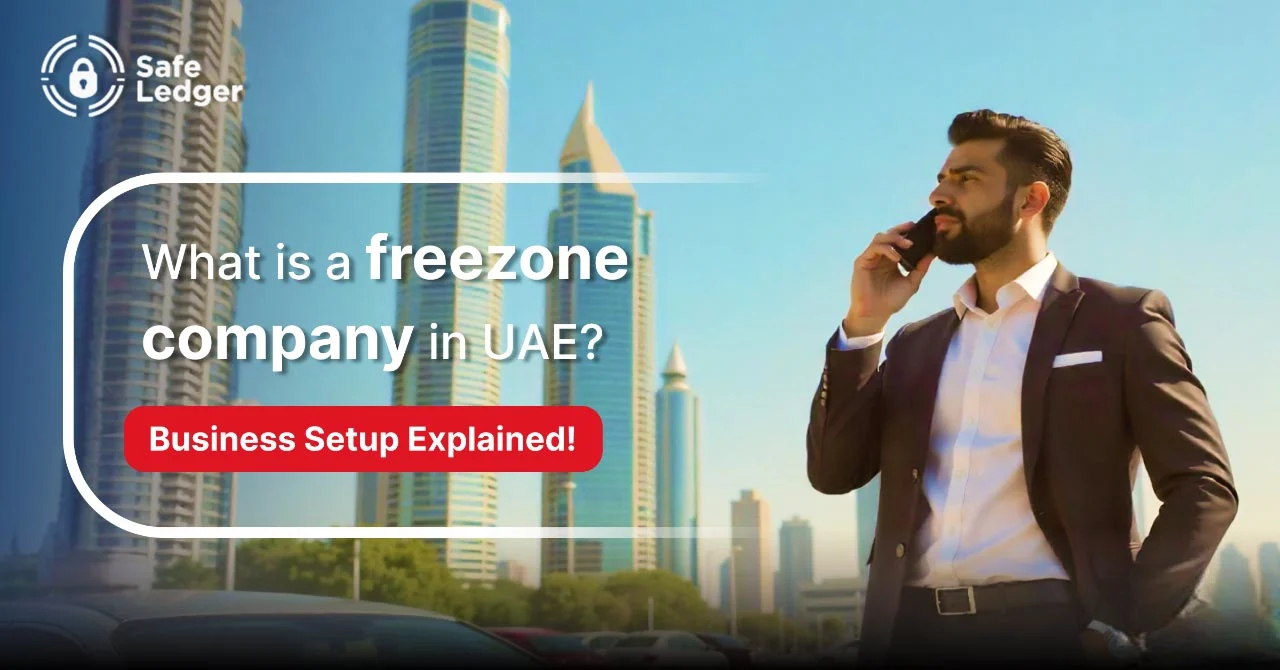Choosing the right free zone is a crucial step in setting up your FZE. Below is a quick look at major free-zone hubs across the UAE:
-
Dubai Free Zones (DMCC, IFZA, DAFZA)
Dubai houses some of the UAE’s most dynamic free zones. The Dubai Multi Commodities Centre (DMCC) stands out as a global leader. In the first half of 2024 alone, DMCC welcomed around 1,023 companies, with the total number of companies exceeding 25,000. Moreover, the region accounted for 15% of all Foreign Direct Investment (FDI) and 7% of the emirate’s GDP.
Beyond DMCC, other popular Dubai free zones such as IFZA (International Free Zone Authority) and DAFZA (Dubai Airport Free Zone Authority) continue to attract SMEs, startups, and international investors. The attractiveness of business setup in Dubai free zone can be attributed to its flexible packages, 100% foreign ownership, and world-class infrastructure.
For instance, in January 2025, IFZA announced a strategic partnership with RAKBANK to provide seamless business and financial solutions to its partners.
-
Abu Dhabi Free Zones (ADGM)
With the Abu Dhabi Global Market (ADGM), Abu Dhabi is rapidly strengthening its position as a global business and financial hub. In 2023, the ADGM witnessed a 32% surge in company registrations, bringing the total to around 1,825 licensed firms. This was supported by private equity funds, asset managers, and investment firms setting up regional headquarters.
Additionally, ADGM recorded unprecedented growth in 2024, with assets under management (AUMs) surging 245%. It also became home to 134 asset and fund managers overseeing 166 funds.
This increased its appeal among global giants like global giants such as Marshall Wace, SS&C Financial Services, Morgan Stanley, and BlackRock, among others.
-
Sharjah, Ajman, and Ras Al Khaimah Free Zones
The northern emirates, including Sharjah, Ajman, and Ras Al Khaimah, have emerged as a prominent cost-effective hub for FZE setups in the UAE. They enjoy high popularity among startups, SMEs, and entrepreneurs seeking lower setup costs without compromising on business benefits.
For instance, Ras Al Khaimah Economic Zone (RAKEZ) is home to over 14,000 companies from more than 100 industries.
Sharjah hosts various zones like the Sharjah Publishing City Free Zone (SPCFZ) and Sharjah Airport International Free Zone (SAIF Zone). Due to their proximity to Sharjah International Airport, these zones offer logistics advantages. Meanwhile, Ajman Free Zone (AFZ), one of the most cost-effective free zones, serves over 9,000 companies of diverse sectors from 185 countries.





